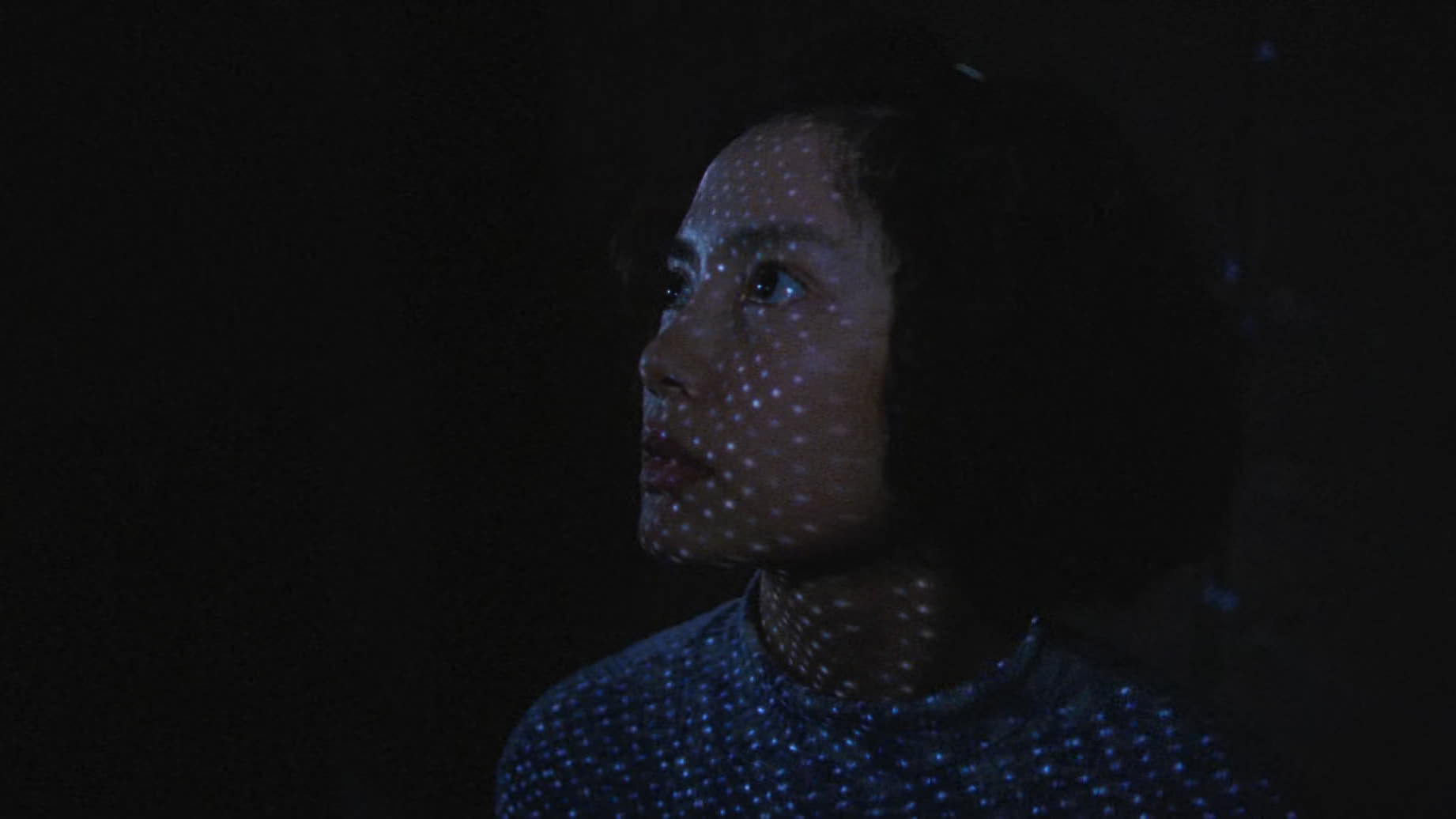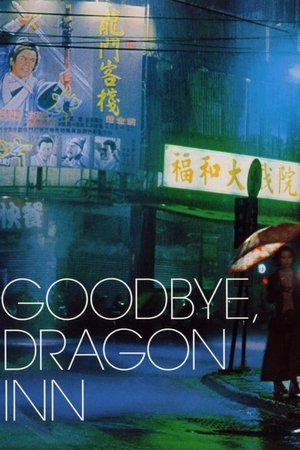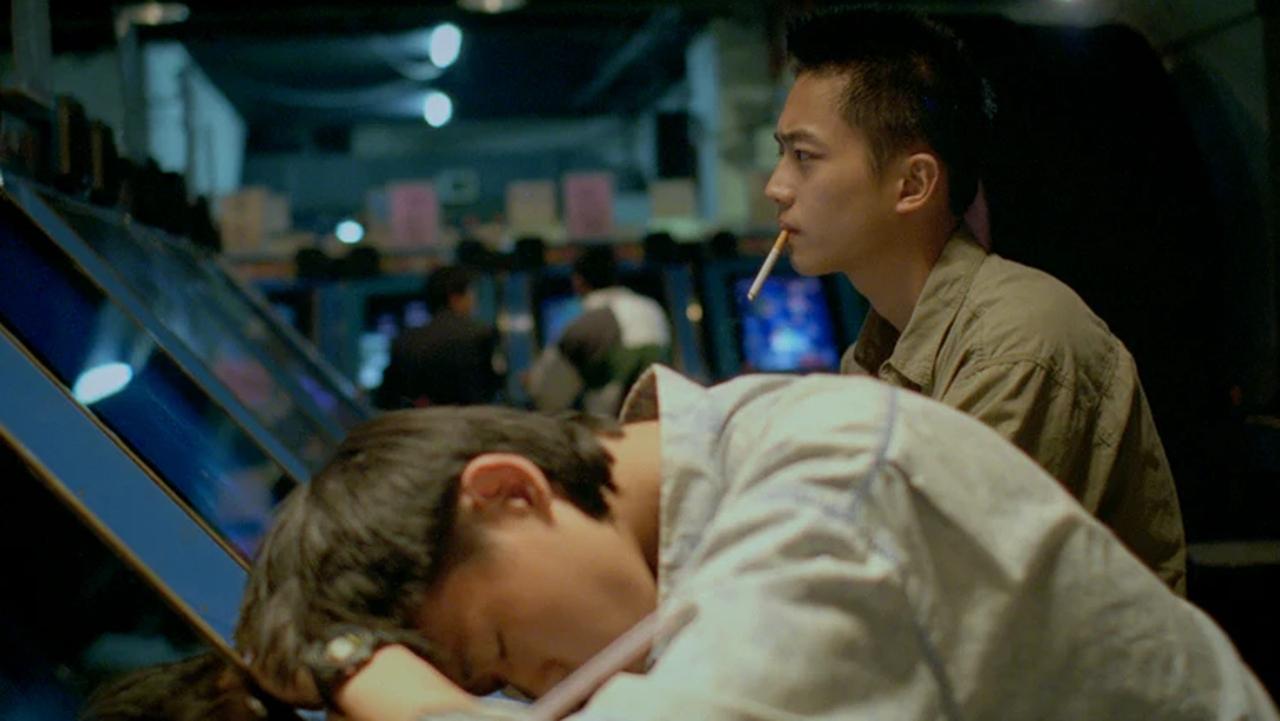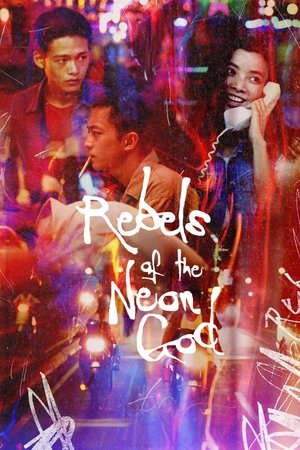Tsai Ming-Liang is a highly acclaimed Taiwanese filmmaker known for his unique and unconventional style.
Here are some of his best films and a brief introduction to each:
“Vive L’Amour” (1994) – This film won the Golden Lion award at the Venice Film Festival and is widely considered to be Tsai’s masterpiece.
It tells the story of three lonely urbanites in Taipei whose lives become intertwined in unexpected ways.
“The River” (1997) – This film explores the lives of a family living in Taipei and their relationship with the river that runs through the city.
It features Tsai’s signature long takes and a contemplative, dreamlike tone.
“What Time Is It There?” (2001) – This film follows a young man who becomes obsessed with setting all the clocks in Taipei to Paris time after he sells a watch to a woman who is about to leave for France.
It explores themes of alienation and connection across cultures.
“Goodbye, Dragon Inn” (2003) – This film takes place in a rundown movie theater in Taipei on its last night of operation, as a small group of patrons watch the classic martial arts film “Dragon Inn”.
It is a haunting and melancholic tribute to the power of cinema.
“Stray Dogs” (2013) – This film follows a homeless father and his two children as they try to survive on the streets of Taipei.
It features long takes and a meditative pace, and is a deeply moving exploration of poverty and family.
Best Tsai Ming-Liang Films
Tsai’s films are often noted for their poetic visuals, their understated performances, and their focus on urban loneliness and alienation.
They have won numerous awards at international film festivals and have earned Tsai a reputation as one of the most important filmmakers of his generation.
1. The River (1997)
“The River” is a 1997 Taiwanese film directed by Tsai Ming-Liang. The film tells the story of a family living in Taipei and their relationship with the river that runs through the city.
The river serves as a recurring visual motif throughout the film, representing both a source of beauty and a force of destruction.
The film centers around a family of three: a father, mother, and son. The father (played by Lee Kang-sheng, a frequent collaborator of Tsai’s) is a businessman who is often away on business trips.
The mother (Miao Tien) is a housewife who spends much of her time caring for her young son (played by Chen Chao-jung).
As the film progresses, we see the family members struggle with various personal and emotional issues.
The mother becomes increasingly lonely and isolated, while the son develops a mysterious neck ailment that no doctor can diagnose.
If you like Tsai Ming Liang’s work, on our sister site AuteurGraph we have a profile page, a visual film timeline, and a ratings page that gives a tonne of info and data about their career in a visualized form.
The father, when he is home, is distant and disconnected from his family.
The film is known for its slow pace, its poetic visuals, and its exploration of themes such as family, loneliness, and the relationship between urban life and the natural world.
It won the Silver Bear at the 1997 Berlin International Film Festival and has been widely praised as one of Tsai’s masterpieces.
- Tien Miao, Kang-sheng Lee, Yi-Ching Lu (Actors)
- Ming-liang Tsai (Director)
- English (Subtitle)
- Audience Rating: NR (Not Rated)
2. Goodbye, Dragon Inn (2003)


Goodbye, Dragon Inn
2003 • 1h 22min • ★ 6.8/10 • Taiwan
Directed by: Tsai Ming-liang
Cast: Lee Kang-sheng, Chen Shiang-Chyi, Kiyonobu Mitamura, Miao Tian, Shih Chun
On a dark and rainy night, a historic and regal Taipei cinema sees its final film: 1967 martial arts feature "Dragon Inn".
Goodbye, Dragon Inn is a 2003 Taiwanese film directed by Tsai Ming-liang. The film takes place on the last night of a rundown movie theater in Taipei, as it screens the classic martial arts film Dragon Inn.
The film is a quiet meditation on the nature of cinema and the passage of time, and explores themes of loneliness, nostalgia, and human connection.
The film features minimal dialogue, with much of the action and emotion conveyed through long, static shots of the empty theater and the faces of its few remaining patrons.
The film also contains several surreal and dreamlike sequences that add to its haunting and melancholic atmosphere.
Goodbye, Dragon Inn received critical acclaim upon its release, and has been praised for its poetic and meditative approach to filmmaking.
It is a testament to the power of cinema to evoke emotion and connect people, even in the face of its own obsolescence.
3. Vive L’Amour (1994)
“Vive L’Amour” is a 1994 Taiwanese film directed by Tsai Ming-Liang. It tells the story of three lonely urbanites in Taipei whose lives become intertwined in unexpected ways.
The film won the Golden Lion award at the 1994 Venice Film Festival and is widely considered to be one of Tsai’s best works.
The film centers around Hsiao-kang (played by Lee Kang-sheng), a young man who works as a real estate agent but spends most of his time wandering the city and staring blankly into space.
He becomes obsessed with an unoccupied apartment and begins to sneak into it to sleep.
As the film progresses, the three characters’ lives become increasingly intertwined, and they begin to form unexpected connections with each other.
Hsiao-kang becomes obsessed with May, while Ah-jung becomes drawn to Hsiao-kang. The film is known for its understated performances, long takes, and quiet exploration of themes such as urban loneliness, sexual desire, and the search for connection.
“Vive L’Amour” is widely regarded as a masterpiece of Taiwanese cinema, and it helped to establish Tsai as one of the most important filmmakers of his generation.
It is noted for its quiet but powerful storytelling, its complex character development, and its exploration of themes that are both deeply personal and broadly universal.
- Chao-jung Chen, Kang-sheng Lee, Kuei-Mei Yang (Actors)
- Ming-liang Tsai (Director)
- English (Playback Language)
- English (Subtitle)
4. The Hole (1998)
The Hole is a 1998 psychological horror-thriller film directed by Tsai Ming-liang. The film takes place in an abandoned apartment building in Taipei, where a young man and woman take refuge from a monsoon.
As they explore the building, they discover a mysterious hole in the floor that seems to have a life of its own.
The film follows their increasingly surreal and nightmarish experiences as they try to unravel the secrets of the hole and escape from the building.
The Hole is a visually striking film, with its saturated colors and haunting imagery. The film is also notable for its use of music, with several musical numbers and dance sequences that add to its dreamlike quality.
The film has been interpreted as an allegory for contemporary Taiwanese society, with its themes of urban decay, isolation, and longing for human connection.
The Hole has been praised for its originality and its ability to blend horror, comedy, and social commentary into a seamless and unforgettable cinematic experience. It is a must-see for fans of surreal and atmospheric horror.
5. I Don’t Want to Sleep Alone (2006)
I Don’t Want to Sleep Alone is a 2006 film directed by Malaysian filmmaker Tsai Ming-liang.
The film tells the story of a homeless man (played by Tsai’s frequent collaborator Lee Kang-sheng) who is beaten and left for dead on the streets of Kuala Lumpur.
He is rescued by a group of migrant workers who take him in and care for him, including a young woman who develops a romantic attraction to him.
The film explores themes of isolation, displacement, and human connection, and features Tsai’s signature slow-paced, contemplative style.
The film is visually striking, with long takes and minimal dialogue, and features a haunting musical score by Lim Giong.
I Don’t Want to Sleep Alone has been praised for its evocative atmosphere and its ability to convey the feeling of dislocation and loneliness that comes with being a stranger in a strange land.
The film is a poignant and powerful meditation on the universal human desire for love and connection, and the ways in which we reach out to each other in times of need.
- English (Subtitle)
- English (Publication Language)
6. The Wayward Cloud (2005)
“The Wayward Cloud” is a 2005 Taiwanese film directed by Tsai Ming-Liang. It is a follow-up to Tsai’s earlier film “What Time Is It There?” and continues to explore themes of loneliness, alienation, and the search for connection in contemporary Taipei.
The film follows Hsiao-kang (played by Lee Kang-sheng), the same character from “What Time Is It There?”, who is now working as a porn actor in Taipei.
He becomes involved with Shiang-chyi (played by Chen Shiang-chyi), a woman he met briefly in the earlier film who is now working as a television shopping host.
The two begin a strange and complicated relationship, exploring their sexuality and their emotional connection to each other.
The film is known for its unconventional and often surreal imagery, which includes frequent musical numbers and a variety of absurd and fantastical scenes.
It also features a number of explicit sex scenes, which have been controversial among some viewers.
Despite its unconventional approach, “The Wayward Cloud” is widely regarded as a powerful and thought-provoking film.
It explores themes of sexual desire, emotional connection, and the impact of urbanization on contemporary life.
The film’s striking visuals and unconventional storytelling style have earned it a reputation as one of Tsai’s most daring and innovative works.
- Factory sealed DVD
- Lee Kang-Sheng, Chen Shiang-Chyi, Lu Yi-ching (Actors)
- Tsai Ming-Liang (Director)
- English (Subtitle)
- English (Publication Language)
7. What Time Is It There? (2001)
What Time Is It There? is a 2001 film directed by Taiwanese filmmaker Tsai Ming-liang. The film tells the story of a young man named Hsiao-kang, who sells watches on the streets of Taipei.
After he sells a watch to a woman who is leaving for Paris, he becomes obsessed with France and begins to change the time on all the watches he sells to match Paris time.
Meanwhile, the woman he sold the watch to is struggling to adapt to life in a foreign country, and the two of them begin to have strange and surreal experiences that blur the boundaries between reality and fantasy.
The film is notable for its use of long takes and minimal dialogue, and for its evocative and dreamlike imagery.
The film explores themes of cultural displacement, the nature of time, and the search for human connection.
What Time Is It There? received critical acclaim upon its release and is widely regarded as one of Tsai’s best films.
The film is a poignant and visually stunning exploration of the human experience, and a testament to the power of cinema to evoke emotion and provoke thought.
- Ming-liang Tsai, Kang-sheng Lee, Shiang-chyi Chen, Yi-Ching Lu, Tien Miao, Cecilia Yip (Author)
- English (Subtitle)
- Audience Rating: NR (Not Rated)
- 08/20/2002 (Publication Date) - Fox Lorber (Publisher)
8. Stray Dogs (2013)
“Stray Dogs” is a 2013 Taiwanese film directed by Tsai Ming-Liang.
It tells the story of a homeless family living in Taipei, including a father (played by Lee Kang-sheng), his two children, and a woman (played by Lu Yi-ching) who may be their mother or the father’s former lover.
The film is noted for its slow pace, its long takes, and its use of static shots to convey the characters’ sense of isolation and despair.
The family is shown living in squalor, scavenging for food and sleeping in abandoned buildings.
The father works as a human billboard, standing in the street holding a sign for a luxury apartment complex.
The film is also marked by a series of surreal and dreamlike sequences, including one in which the father imagines himself as a giant tree towering over the city.
These sequences are meant to convey the characters’ emotional states and their sense of disconnection from the world around them.
The film has been praised for its powerful and moving portrayal of the struggles faced by homeless and marginalized people in contemporary Taiwan.
It is also noted for its innovative use of sound and its unconventional storytelling style, which blends realism and surrealism in unexpected ways.
“Stray Dogs” won the Grand Jury Prize at the 2013 Venice Film Festival and has been widely acclaimed as one of Tsai’s masterpieces.
It is regarded as a powerful and haunting meditation on the human condition and the search for meaning in a world that can often seem hostile and indifferent.
- Shiang-chyi Chen (Actor)
- Tsai Ming Liang (Director)
- English (Publication Language)
- Audience Rating: NR (Not Rated)
9. Afternoon (2015)
Afternoon is a 2015 film directed by Taiwanese filmmaker Tsai Ming-liang. The film is a slow-paced and contemplative exploration of the everyday lives of several people in contemporary Taipei.
The film features a series of vignettes, each of which focuses on a different character and their experiences of the city and its people.
The film is notable for its use of long takes and static shots, and for its ability to capture the small moments and details of everyday life.
The film features minimal dialogue, with much of the action and emotion conveyed through subtle gestures and expressions.
Afternoon is a meditation on the beauty and complexity of the world around us, and a reminder to slow down and appreciate the simple things in life.
The film is a testament to the power of cinema to capture the essence of the human experience, and to reveal the extraordinary in the seemingly ordinary.
- Pancake, Waldo (Author)
- English (Publication Language)
- 320 Pages - 07/01/2014 (Publication Date) - Sourcebooks Inc (Publisher)
10. Rebels of the Neon God (1992)


Rebels of the Neon God
1994 • 1h 46min • ★ 7.3/10 • Taiwan
Directed by: Tsai Ming-liang
Cast: Lee Kang-sheng, Chen Chao-jung, Wang Yu-wen, Jen Chang-bin, Miao Tian
In Taipei, revenge and love twist the paths of wayward youths.
Rebels of the Neon God is a 1992 Taiwanese film directed by Tsai Ming-liang.
The film follows the lives of three young people in Taipei – Hsiao-Kang, a disaffected student.
who has just failed his college entrance exams, Ah Tze, a petty criminal who is obsessed with his motorbike, and Ah Bing, a gas station attendant who becomes the object of Hsiao-Kang’s infatuation.
The film is a gritty and realistic portrayal of youth culture in contemporary Taiwan, and explores themes of alienation, violence, and the search for identity.
The film is notable for its use of long takes and static shots, which create a sense of detachment and emotional distance from the characters.
Rebels of the Neon God was Tsai’s first feature-length film and established him as a major force in Taiwanese cinema.
The film is a powerful and haunting portrait of a generation struggling to find its place in a rapidly changing world, and a testament to the enduring power of cinema to reflect and comment on the society in which it is made.
- Lee Kang-sheng, Chen Chao-jung, Wang Yu-wen (Actors)
- Tsai Ming-liang (Director)
- English (Subtitle)
- English (Publication Language)
11. Face (2009)
“Face” is a 2009 Taiwanese-French film directed by Tsai Ming-Liang. It tells the story of a Taiwanese filmmaker (played by Lee Kang-sheng) who travels to Paris to work on a new film.
While there, he becomes involved in a series of surreal and mysterious encounters with a woman (played by Laetitia Casta) who is trying to save her failing marriage.
The film is known for its striking visuals, which include long takes, static shots, and minimalist sets.
It is also marked by a series of surreal and dreamlike sequences, including a sequence in which the two main characters meet in a darkened theater and watch a film of themselves.
“Face” is a meditation on the nature of identity, memory, and desire. The film explores the ways in which we construct and deconstruct our sense of self, and the role that memory and desire play in shaping our perceptions of the world.
It is a deeply philosophical work that challenges the viewer to question their own assumptions about reality and the self.
The film has been praised for its innovative approach to storytelling, its striking visuals, and its powerful performances.
It is regarded as one of Tsai’s most challenging and thought-provoking films, and has been widely acclaimed by critics and audiences alike.
- English (Subtitle)
- Audience Rating: Unrated (Not Rated)
3 Characteristics of Tsai Ming-Liang Films
Tsai Ming-Liang is a Taiwanese filmmaker known for his innovative and thought-provoking films. Here are three characteristics that are often found in his work:
Slow pacing and long takes: Tsai’s films are characterized by a deliberate and slow pace, often featuring long takes that allow the viewer to immerse themselves in the world of the film.
This style of filmmaking encourages the viewer to be patient and attentive, and to contemplate the deeper themes and ideas that the film is exploring.
Minimalist visuals: Tsai’s films often feature minimalist sets and environments, with a focus on empty spaces and the small details of everyday life.
This approach creates a sense of isolation and alienation, and highlights the emotional struggles of the characters in his films.
Surreal and dreamlike sequences: Tsai’s films frequently incorporate surreal and dreamlike sequences that blur the line between reality and imagination.
These sequences often convey the characters’ inner emotional states, and provide a glimpse into their deepest fears, desires, and hopes.
These characteristics are often combined with themes such as loneliness, alienation, and the search for connection in modern urban environments.
Tsai’s films are challenging and thought-provoking, and often encourage the viewer to question their own assumptions and beliefs about the world.
3 Reasons Why You Should Watch Tsai Ming-Liang Films
Sure! Here are three reasons why you should watch Tsai Ming-liang films:
Unique cinematic style: Tsai Ming-liang is known for his signature slow-paced and meditative style, which emphasizes stillness, long takes, and minimal dialogue.
This style allows his films to create a rich and immersive atmosphere that draws the audience into the world of the film.
Exploration of human condition: Tsai’s films often explore the complex emotions and experiences that make up the human condition.
He is interested in exploring themes such as alienation, displacement, and human connection, and his films often offer poignant and powerful meditations on these subjects.
Social commentary: Tsai’s films are often social critiques, offering a commentary on contemporary society and its ills.
He often uses his characters to highlight the injustices and inequalities that exist in modern life, and his films can be seen as a call to action to create a better world.
Overall, Tsai Ming-liang’s films are a powerful and unique cinematic experience that offer both aesthetic and intellectual rewards.
If you are a fan of art-house cinema, or simply interested in exploring the deeper aspects of the human experience, then Tsai’s films are definitely worth watching.
Best Tsai Ming-Liang Films – Wrapping Up
Tsai Ming-liang is a highly regarded filmmaker whose films have won numerous awards and critical acclaim. Here are some of his best films:
Vive L’Amour (1994): A slow-paced and meditative exploration of human relationships, Vive L’Amour tells the story of three lonely individuals living in Taipei who are brought together by chance.
What Time Is It There? (2001): A poignant and visually stunning exploration of cultural displacement and the search for human connection, What Time Is It There? follows the lives of a watch salesman and a woman who is leaving for Paris.
Goodbye, Dragon Inn (2003): A tribute to classic Taiwanese cinema, Goodbye, Dragon Inn is a haunting and poetic exploration of the passage of time and the legacy of film.
The River (1997): A mesmerizing and dreamlike exploration of adolescence and sexual awakening, The River is a powerful and evocative film that showcases Tsai’s unique cinematic style.
Rebels of the Neon God (1992): Tsai’s debut film, Rebels of the Neon God is a gritty and realistic portrayal of youth culture in contemporary Taiwan, and a powerful and haunting portrait of a generation struggling to find its place in a rapidly changing world.
Tsai Ming-liang’s films are a powerful and unique cinematic experience that offer both aesthetic and intellectual rewards.
If you are a fan of art-house cinema or simply interested in exploring the deeper aspects of the human experience, then Tsai’s films are definitely worth watching.



![The River [DVD]](https://m.media-amazon.com/images/I/514ctzkxh9L.jpg)
![Goodbye, Dragon Inn [DVD]](https://m.media-amazon.com/images/I/41EdXxO7BIL.jpg)



![I Don't Want To Sleep Alone [2006] [DVD]](https://m.media-amazon.com/images/I/41fcnMmQx9L.jpg)


![What Time Is it There? [DVD]](https://m.media-amazon.com/images/I/51EG84PSGVL.jpg)

![Stray Dogs [Blu-ray]](https://m.media-amazon.com/images/I/51MJ3Ki4pQL.jpg)



